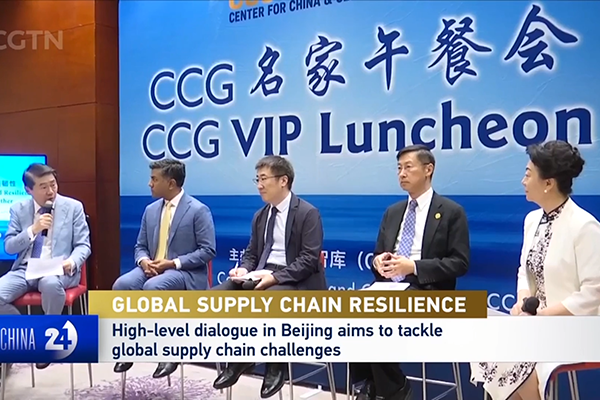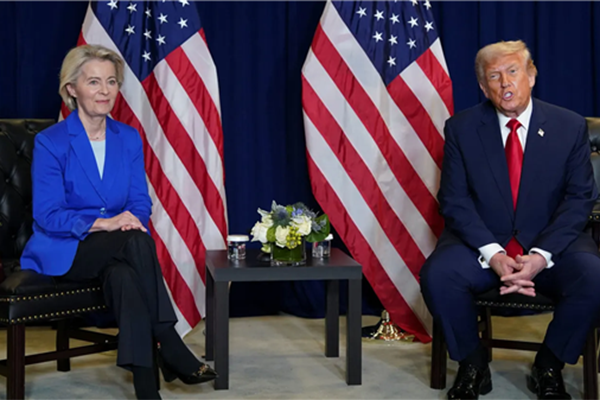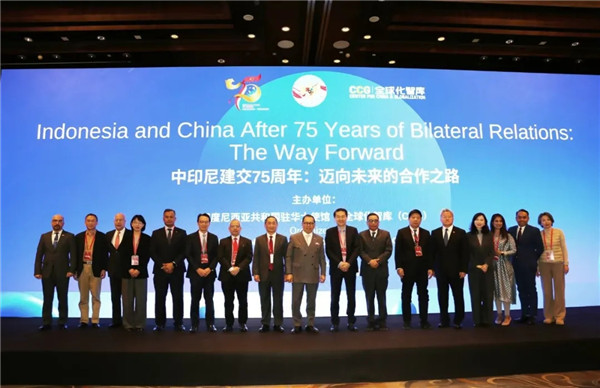People-to-people exchange resumes with US
September 04 , 2023Along with the resumption of high-level contact between China and the United States in the past few months, communication and interaction between the two nations’ think tanks have also gained momentum with support from governments of both countries.
At a press briefing on June 19, after U.S. Secretary of State Antony Blinken wrapped up his two-day visit to Beijing, Yang Tao, Director General of the Department of North American and Oceanian Affairs of the Chinese Ministry of Foreign Affairs, said China and the U.S. have agreed to encourage more people-to-people and educational exchanges.
On October 8, 2022, Xie Feng, then Vice Foreign Minister and currently Chinese Ambassador to the U.S., met with Scott Kennedy, Senior Advisor of the U.S. Center for Strategic and International Studies (CSIS). He called upon scholars from the two countries’ think tanks to strengthen contact and foster more communication to enhance mutual understanding and contribute to the restoration of healthy and stable China-U.S. relations.
On August 17, more than 20 leading figures and senior researchers from Chinese think tanks and other institutions attended an event in Beijing where the Center for China and Globalization (CCG) launched the book Global Think Tank 2.0. At the gathering, some attendees shared observations from their recent visits to the U.S.
Dialogue is the only way out
Wang Huiyao, Director of the CCG, led a delegation of experts to embark on an overseas trip in June. In 40 days, they participated in over 50 exchange activities in 16 cities in 10 countries, including the U.S.
Wang said as senior officials of the Joe Biden administration have visited China in recent months, individuals in the American business and academic realms have also expressed their wish to come to China. They are currently focused on how China and the U.S. can coexist peacefully and avoid conflict.
Da Wei, Director of the Center for International Security and Strategy and Vice Chair of the China Forum at Tsinghua University, shared a similar observation after a two-week visit to the U.S.
Led by Da, a group of students from Tsinghua University visited the U.S. from July 26 to August 9. They were part of the Youth Voices delegation from Tsinghua’s Center for Global Competence Development. The program included visits to universities, think tanks, government agencies and nongovernmental organizations in Boston, New York and other U.S. cities.
According to Da, scholars from American universities and think tanks are quite open to engage in more exchange with Chinese students. “Both sides believe it is crucial to expand personal interactions and are therefore facilitating visits and collaborations among students and scholars on the basis of mutual respect,” Da told Beijing Review.
The currently insufficient number of flights and the high ticket prices act as barriers to further engagement, Wang said. On September 1, the weekly number of China-U.S. round-trip flights operated by carriers of the two countries increased from 24 to 36 and the number will grow to 48 on October 29. However, as reported by Reuters, the top U.S. diplomat for East Asia Daniel Kritenbrink said there were about 350 flights a week between the U.S. and China prior to the outbreak of COVID-19 pandemic in early 2020.
Time is of the essence
In general, scholars at American think tanks have a good understanding of China’s socioeconomic conditions. But currently there is limited exchange of personnel between the two sides. Direct face-to-face interactions are scarce, with video communication unable to replace in-person dialogue, Da explained, adding, “in the absence of on-the-ground research, it’s easy to harbor an imaginative, sometime wild, view of China.”
“In this sense, the understanding of China by American think tanks is not as accurate and delicate as it was before the pandemic. It has become somewhat biased and stereotyped, and the nuanced perspective that existed in the past is missing,” he added.
During the event, Li Cheng, Founding Director of the Center on the Governance of China and the World at the University of Hong Kong, called for reversing the worsening climate for the exchange between think tanks in China and the United States. “A more serious issue is the decoupling between think tanks, just as decoupling is occurring in other areas,” he said. In July, Li stepped down from his position as director of the John L. Thornton China Center at the Brookings Institution and later joined the University of Hong Kong as a professor of political science.
Li pointed out that one challenge currently facing U.S. think tanks particularly involves legal issues. He cited the Foreign Agents Registration Act, which was enacted in the U.S. in 1938 to serve as a deterrent to the spread of “harmful influence” by imposing disclosure requirements and other legal obligations on individuals or entities acting as “agents of a foreign principal.” This presents a dilemma for U.S. think tanks providing advice to foreign entities, as there is uncertainty about what constitutes advice and what does not in casual conversations. This uncertainty leads to apprehension about inadvertently violating the law.
“While think tanks must maintain exchange with counterparts from home and abroad, it’s difficult to discern what falls into the category of advice during a conversation. Even established institutions like the Carnegie Endowment for International Peace, the Brookings Institution or CSIS are uncertain about what is permissible and what might cross legal boundaries,” Li explained. “Nobody wants to unintentionally break the law.”
Li emphasized that the role of think tanks is to facilitate people-to-people exchanges and mutual understanding, even under strained bilateral relations. The think tanks of both countries must overcome the obstacles that impede communication as soon as possible, according to Li.
From Beijing Review, 2023-9-4






